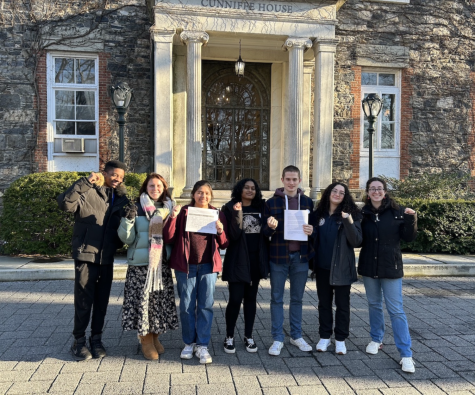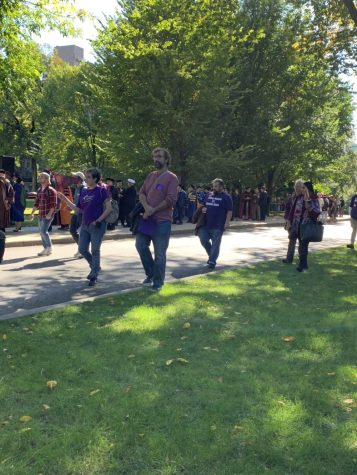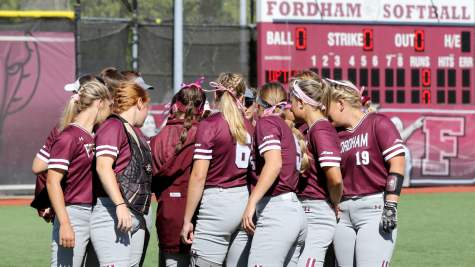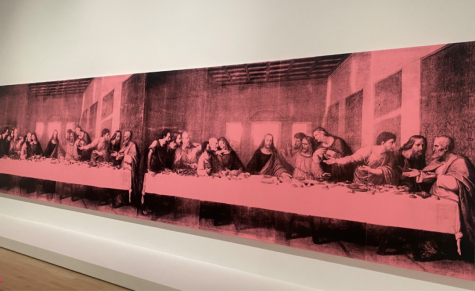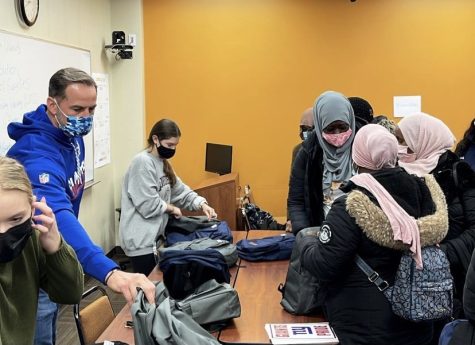Off Campus Fordham Students Spend Money but Not Time in the Area
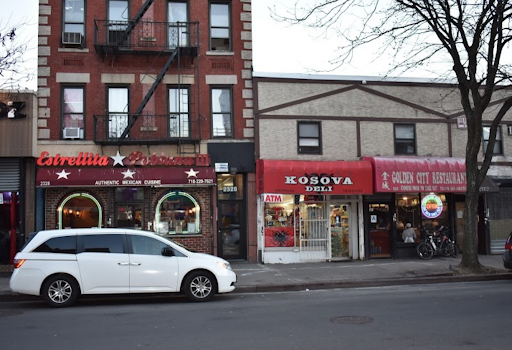
Students frequent Estrellita Poblano for authentic Mexican food (Eliot Schiaparelli/The Fordham Ram).
By Eliot Schiaparelli
After classes let out at Fordham University, students flood to Arthur Avenue and the Belmont neighborhood. They grab a bite to eat at Estrellita Poblano III, spend their late nights at establishments on the corner of 189th/Arthur Avenue and shop for groceries at Modern Market.
According to Frank Franz FCRH ’75, the one thing those students fail to do is connect with the local community. Franz serves as the treasurer for the Business Improvement District’s board of directors, and his family has lived in the same house on East 191st street since 1910.
“A lot of the students don’t get the full neighborhood experience that they could; even in the community I think they’re still largely isolated among themselves,” he said. ”They’re like a sub community within the greater community, and there’s some interaction back and forth, and it’s all peaceful and cordial, but I think there’s a lot more that could be going on to make this a better experience for the students while they’re here and for the community as well.”
According to statistics from the Arthur Avenue Business Improvement District, roughly 5,300 students live in the neighborhood, whether that is on campus or off campus. Those students spend 16 million annually on rent in the area and 10.3 million on retail and dining.
During the summer months, however, those students leave and some of the stores that serve them close down. Signs appear in store and restaurant windows like Pugsley’s Pizza saying they will be back in August.
Students tend to live in a concentrated cluster somewhere between Bathgate Avenue and Cambreleng Avenue and usually do not extend beyond 186th St. They often live in houses or apartment buildings filled with fellow students. Franz says that he wishes those students would seek more cultural and artistic opportunities in the neighborhood.
“When I went to university, the purpose of going was to explore a lot of things to enhance your thinking to learn how to think for yourself, make your own decisions and to be able to be on your own. I don’t think a lot of students graduate Fordham ready to live on their own,” he said. “I can see by the way they live here.”
Franz said students did not begin to venture beyond the university’s gates until the late ’80s and early ’90s. He said the transition was rough at first but now students and the community have learned to live with each other.
“As a lifelong resident, it is so much better now than it was 20 years ago. There’s no doubt in my mind, and most people here will agree, that the caliber of students at Fordham now is significantly better than it was 20 years ago,” he said. “And by caliber I don’t necessarily mean their intelligence and how they do in school. By caliber I mean their demeanor, their level politeness, their level of responsibility and how they interact.”
He said the neighborhood has even come to expect things like Spring Weekend and Homecoming.
Olivia Valkenburg FCRH ’21 lives in an apartment building on Lorillard that she said is largely comprised of other Fordham students. She said she likes the independence of living off campus but she mainly interacts with other Fordham students.
“I don’t really know any Bronx [permanent residents], and there aren’t many in the building,” she said. “But I do have friends in the building and off campus”
Frank Taddeo FCRH ’21 also lives off campus in Artu Viale, a luxury apartment building on Arthur Avenue that mainly consists of students. He said the cost balances out between living in the apartments and living on campus.
“It’s so nice having your own room, being able to close the door and have it just be you,” he said.
Dylan Mazzarella, FCRH ’20, also said he likes the independence of living off campus.
“I’m so happy with my apartment and my roommates and I love being independent,” he said. “The building I live in is all Fordham students and basically there are no other apartments near us that aren’t, but it is a building known for loud parties so I feel like that’s something you need to know coming in.”
Mazzarella said dealing with problems is easy in a building that is all Fordham students.
“My roommates and I don’t care about loud noises, but there are other people in our building that have definitely texted us and others to be quiet,” he said. “I feel like if you move off campus though that’s something you have to respect because people can enjoy themselves without the fear of getting doc’d.”
Franz said that the university could play a bigger role in the community. He pointed out schools like NYU and Columbia that lift up the neighborhoods in which they are placed.
He suggested something as simple as putting out garbage pails on 191st St. would make a big difference.










































































































































































































